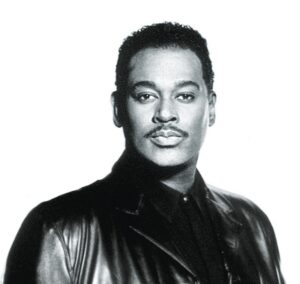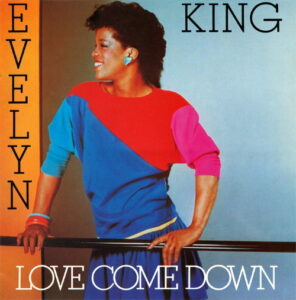What Motown and Detroit were to music of the 1960s, Gamble and Huff and their Philadelphia International Records were to the 1970s. The most important record producers and executives of that decade, they helped launch the careers of such acts as the O’Jays, Teddy Pendergrass, the Jones Girls and dozens of other acts.
Kenneth Gamble’s childhood in Philadelphia shaped his adult life: he recorded himself on various arcade recording machines, assisted the morning show DJs on WDAS, operated a record store, and sang with The Romeos (with future singing star Daryl Hall). In 1964, Gamble was discovered and managed by Jerry Ross when Gamble was only 17 years old. They collaborated for many years. Gamble teamed up with Leon Huff (keyboards) for the first time on a recording for Candy & The Kisses. Ross then signed Gamble to Columbia Records in 1963 as a solo recording artist, releasing “You Don’t Know What You Got Until You Lose It”. Gamble & Ross & Huff collaborated on the hit song “I’m Gonna Make You Love Me” recorded by Dee Dee Warwick, and later by Diana Ross & The Supremes, and The Temptations.
In 1967, they produced their first Top 5 hit: “Expressway To Your Heart” by The Soul Survivors. Working for Atlantic Records, the team worked with Archie Bell & the Drells, Wilson Pickett, Aretha Franklin, and Jerry Butler, scoring numerous hits along the way.
With a solid track record now behind them, Gamble and Huff formed Philadelphia International Records in 1971 as a rival to Berry Gordy and Motown. CBS Records backed the venture and distributed Philadelphia International’s records. Aided and abetted by in-house arrangers Thom Bell and Bobby Martin, Philadelphia International released a number of the most popular soul music hits of the 1970s, including “If You Don’t Know Me by Now” by Harold Melvin & the Blue Notes, “Back Stabbers” and “Love Train” by the O’Jays, and the Grammy-winning “Me and Mrs. Jones” by Billy Paul.
Gamble and Huff’s Philadelphia soul sound evolved from the simpler arrangements of the late-1960s into a style featuring lush strings, thumping basslines, and sliding hi-hat rhythms — elements that soon became the distinguishing characteristics of a new style of music called disco. By 1975, Philadelphia International and the Philadelphia soul genre it helped define had largely eclipsed Motown and the Motown Sound in popularity, and Gamble and Huff were the premiere producers of soul.
It should be noted that nearly all of the Philadelphia International records featured the work of the label’s in-house band of studio musicians, MFSB. MFSB cut a number of successful instrumental albums and singles written and produced by the Gamble & Huff team and arranged by Bobby Martin, including their 1974 #1 hit “TSOP (The Sound of Philadelphia)”, now best known as the theme song from the American television show Soul Train.
Through the 1970s, Gamble and Huff continued to work with some of the biggest acts in the music industry, and Gamble in particular began his continuing work to clean up the inner cities and help African-American youth. He also contributed his time and energy to the T.J. Martell Leukemia Foundation and The AMC Cancer Research Center and Hospital. His charitable works and civic efforts continue today. He also helped start the “Clean Up The Ghetto” project, which involved the youth of blighted communities helping with the clean-up and repair of damaged or neglected properties. PRI recorded a song using many of their popular artists in support of the project. Started in Philadelphia, “Clean Up The Ghetto” spread to Los Angeles, Atlanta, and Chicago, and similar events have been held throughout the country.
By 1980, however, a combination of legal troubles, distribution woes and the changing sounds of urban radio led to a decline in the fate of PIR and the Philadelphia soul. Still, the label had its share of success as artists such as the Jacksons, Pendergrass and Patti LaBelle scored crossover hits.
In 1982, Philadelphia International’s biggest star, former Blue Notes singer Teddy Pendergrass, became paralyzed from the waist down in a car accident, and the future of the label came to be in doubt. That year, Philadelphia broke its ties with CBS and made a new deal with EMI. Although the hits had by now dried up, Gamble and Huff continued to write and produce for the label’s artists.
PIR then began a painful, decade-long contraction to virtual non-existence, and the organization, now run by nephew Chuck Gamble, is simply licensing old hits for use in commercials.
Today, Kenneth Gamble continues to write, often with Leon Huff, and Philadelphia International continues. He still lives in South Philadelphia, and remains active in his community. On September 19, 2005 Gamble and Huff were inducted into the Dance Music Hall of Fame for their outstanding achievements as producers at a ceremony held in New York City.
This article is licensed under the GNU Free Documentation License. It uses material from the Wikepedia article Gamble & Huff










